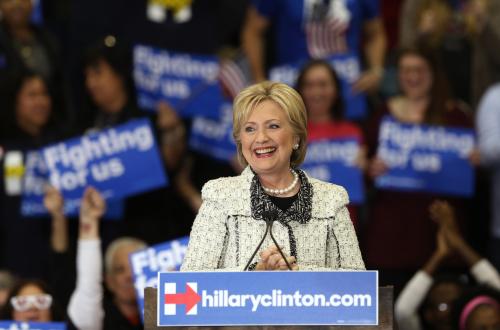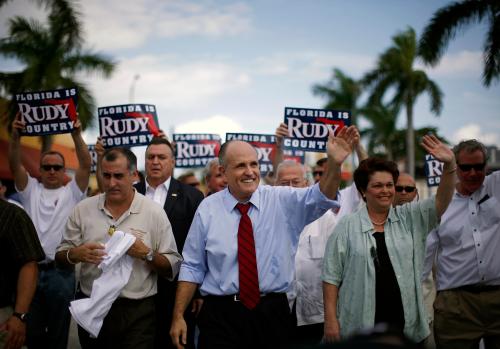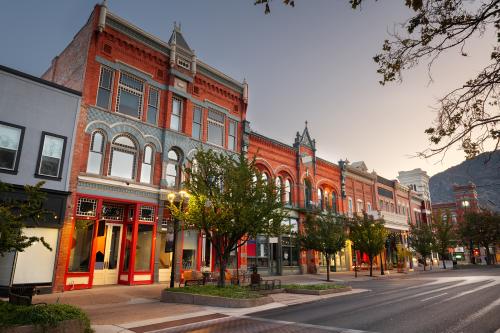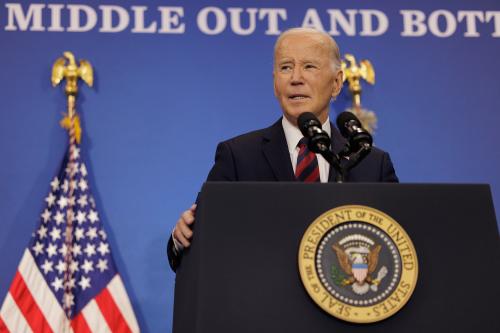On Super Tuesday, Michael Bloomberg joined the ranks of other wealthy individuals who have spent millions of their own money on political ambitions, only to see their ambitions dashed on election day. When he failed to win or place in any of the 14 states, many Americans breathed a sigh of relief over the fact that, even in our degraded democracy, money still can’t buy elections.
There have been other presidential candidates who spent tons of money for not much. The first presidential candidate to become famous for spending loads of money for nothing was former Texas Gov. John Connally, who spent $500,000 of his own money on his race for the Republican presidential nomination in 1980—and won only one delegate. (At the time, this seemed an enormous sum of money.
Today, the standard is a bit different: It is estimated that Bloomberg’s cost-per-delegate is around $18 million.) But others followed in Connally’s footsteps nonetheless. Republican Steve Forbes spent $69.2 million of his publishing fortune on attempts at winning the Republican nominations in 1996 and 2000, where he won only a handful of delegates. Mitt Romney did a little better, spending nearly $45 million of his own money in 2008 and winning 278 delegates to that year’s Republican convention. In 2016, Donald Trump spent about $66 million of his own money on the nomination race, becoming the only candidate to get a decent return on investment for his money.
Wealthy people who spend their own money freely do somewhat better below the presidential level. Jay Rockefeller won statewide races for governor and senator in West Virginia. Jay Pritzker spent handsomely to become the governor of Illinois. Sen. Rick Scott (R-Fla.), and former Sens. John Corzine (D-N.J.), Herb Kohl, (D-Wis.), Frank Lautenberg (D-N.J.), and John Heinz (R-Pa.) all spent freely and won Senate seats. But there were also plenty of big losers. Michael Huffington spent $27.5 million of his own money on a California Senate seat that he lost. And Jeff Greene spent $23 million of his own money on a failed Democratic primary run for a Senate seat in Florida.
But what makes Bloomberg unique is not only the sheer magnitude of his wealth—Bloomberg’s estimated net worth of $61.9 billion makes him the eighth-richest person in the world, according to Forbes—but his willingness to spend it on Democratic candidates and causes.
This year saw two wealthy Democrats in addition to Bloomberg get into the race. The first candidate to announce for the Democratic nomination was former Maryland Congressman John Delaney, who put $20 million into his presidential campaign. He suspended it three days before the first votes were cast in the Iowa caucuses. Tom Steyer, a California billionaire with no public sector experience, invested over $200,000,000 of his own money in the Democratic nomination race—without winning a single delegate.
If all that money can’t buy the affections of the voters, what can it buy? Plenty. Here are a few suggestions:
Unlike some of the other wealthy men whose campaigns have felt like nothing more than ego trips, Bloomberg seemed motivated by a sincere desire to get rid of Donald Trump. So, the first thing he can do is help Democrats make the case against Trump—something, to his credit, he promised to do from the very beginning no matter what happened to him. Bloomberg has endorsed Joe Biden, and he could put his massive campaign infrastructure behind the former vice president to win the nomination.
With a long history of climate-based philanthropy, Bloomberg could also mobilize environmental activists to participate in the election. Almost all Democrats care more about the environment than Republicans, but, as we saw over the course of 10 debates, those issues often get lost in the shuffle of more traditional Democratic issues. Bloomberg can make sure that environmental voters play as big a role as more traditional groups like unions and civil rights activists have.
On the institutional level, he can establish a fund for Democratic state parties around the country to help them combat the flood of internet disinformation that is sure to be lobbed at Democratic candidates, both from Russia and from Republicans. State parties are chronically underfunded and often shoe-string operations. While the candidates are trying to get out their own messages, the parties can take an active role in combatting whatever the 2020 version of “Pizzagate” is.
Bloomberg could fund local news organizations and statehouse reporters. The collapse of local and state political reporting has left our views of the world subject to filtering by the fraction of the population that’s active on Twitter. They are not representative of the broader public and paint a distorted picture of reality. Users of Twitter are younger than the general public, and Biden has struggled so far to attract younger voters—so if you were only reading Twitter, Tuesday’s results would be a real shock.
Of course, Bloomberg could also buy Fox News and shut it down. It would cost him only about half of his total net worth—but the value to democracy would be enormous.
I’m sure I’m leaving out hundreds of worthy projects. The amazing thing about Bloomberg is that he could fund so many of them. For all the incoming fire he took about trying to buy the election, his quick exit from the race and his commitment to staying in the arena may make him a historic figure after all.
The Brookings Institution is committed to quality, independence, and impact.
We are supported by a diverse array of funders. In line with our values and policies, each Brookings publication represents the sole views of its author(s).






Commentary
If money can’t buy you votes, what can it buy? Lessons from Michael Bloomberg’s 2020 run
March 5, 2020